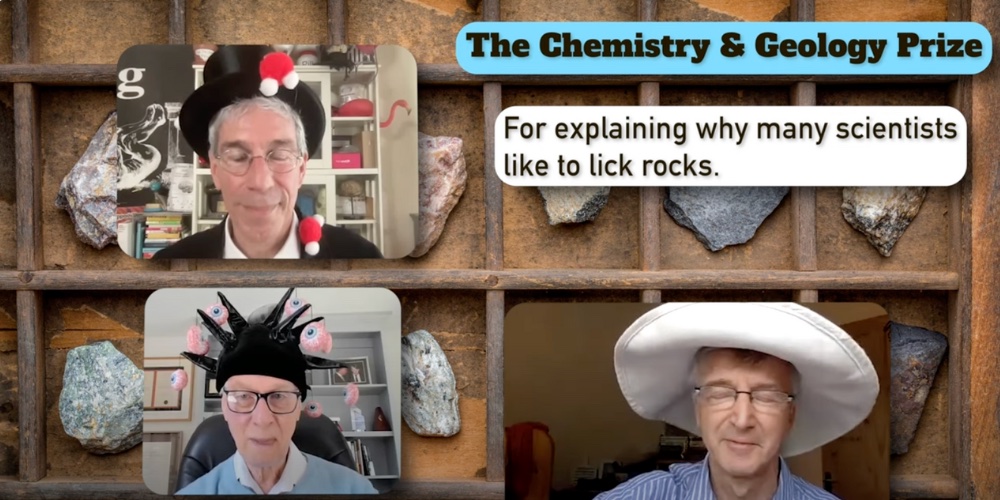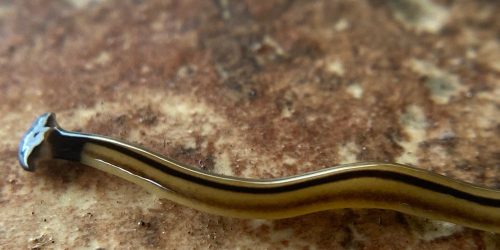2023’S IG NOBEL WINNERS INCLUDE STUDIES ON LICKING ROCKS, NOSE HAIR, AND ANCHOVY SEX

The Ig Nobel Prize is a satiric prize awarded annually since 1991 to celebrate ten unusual or trivial achievements in scientific research. Its aim is to "honour achievements that first make people laugh, and then make them think."
The 2023 Ig Nobel Prize winners were announced over the weekend. It’s like the Nobel Prize, but for the silliest, weirdest, and sometimes dumbest scientific pursuits over the past year.
As always, they didn’t disappoint. Here are the ten Ig Nobel winners for 2023 . . .
1. In Chemistry and Geology: A paleontologist explained the reasons why geologists and paleontologists like to LICK ROCKS. For one: If it’s a rock, it’ll be like licking a rock. But if it’s a piece of fossilized bone, it’ll stick to your tongue.
2. In Literature: A study on the sensations people feel when they repeat a single word “many, many, many, many, many, many, many times.”
3. In Mechanical Engineering: Experiments where researchers “re-animated” dead spiders to use as mechanical gripping tools. Like one of those claw machines.
4. In Medicine: A study using cadavers to explore whether there is an equal number of hairs in each of a person’s two nostrils. It’s not equal. However, they found the average nose hair count per nostril is between 120 and 122 hairs.
5. In Communication: A study on the mental activities of people who excel at speaking backward. (For example, instead of “happy birthday”, say, “py-happ day-birth.”) (???)
6. In Public Health: The invention of a smart toilet that uses a variety of technologies to monitor and quickly analyze our waste. (The idea has been around for a while, but the development was slowed due to the “privacy concerns” of recording instruments in the bathroom.)
7. In Nutrition: Experiments to determine how “electrified chopsticks” and drinking straws could change the taste of food.
8. In Education: A methodical study on the boredom of students and teachers.
9. In Psychology: Experiments on a city street, to see how many passersby stop to look upward, when they see strangers looking upward.
10. In Physics: A study measuring the extent to which ocean-water mixing is affected by the sexual activity, of anchovies.
Beat FOMO by being in the know!
Sign up for our newsletter today and never miss a beat.







